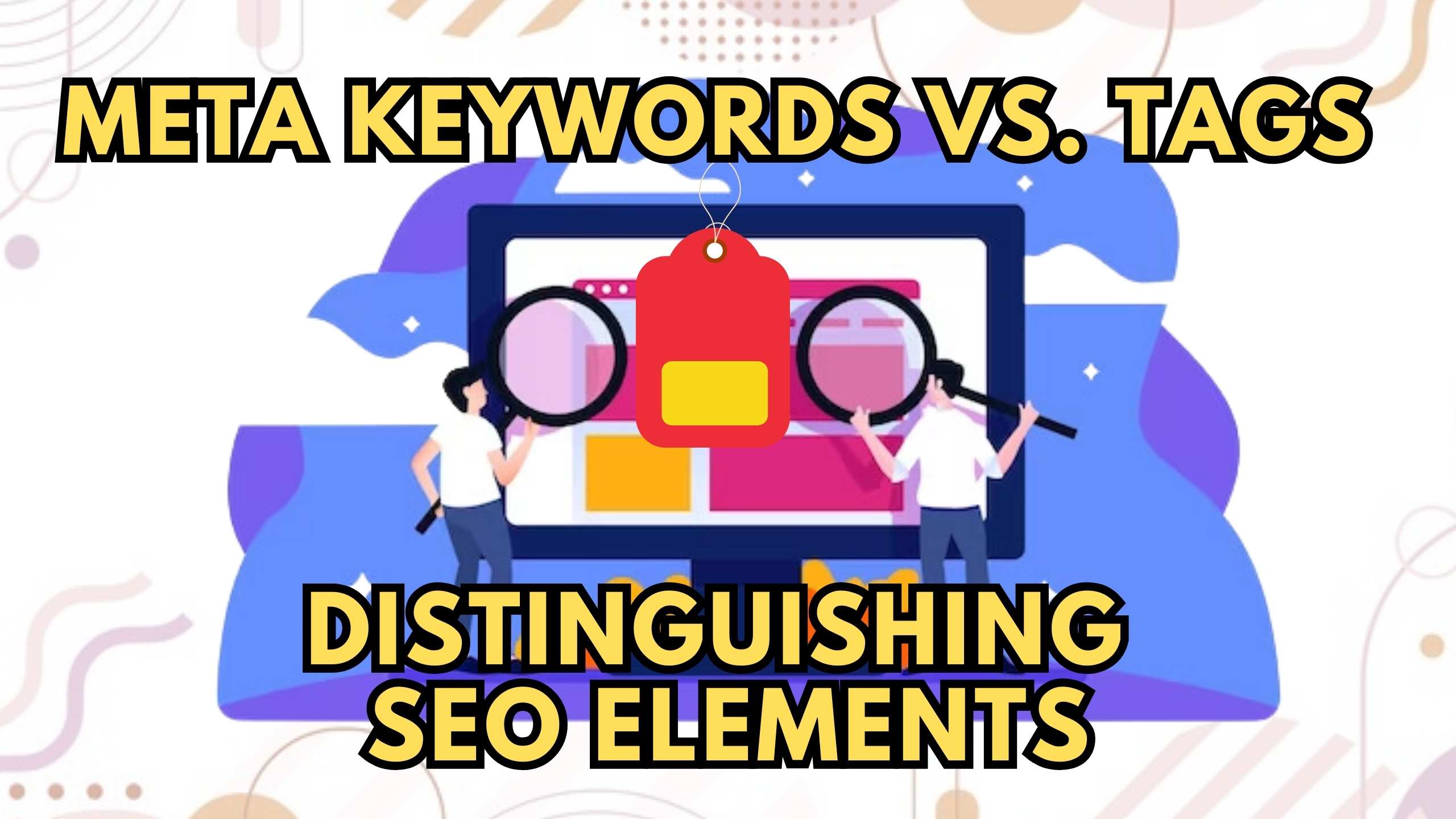Meta Keywords vs. Tags: Distinguishing SEO Elements
- WebOps Platforms Bug Tracking & Feedback Software Web Development & Design


Meta Keywords vs. Tags: Distinguishing SEO Elements
In the ever-evolving landscape of SEO, understanding the intricate differences between meta keywords and tags is crucial for maximizing your website’s visibility on search engines. Furthermore, let’s dive deeper into each element and explore their roles in today’s SEO strategies.
Meta Keywords: Beyond the Basics
Meta Keywords in SEO were once pivotal for helping search engines comprehend a webpage’s content. However, with the evolution of major search engines like Google, meta keywords have seen a decline in significance within ranking algorithms. Despite this, judiciously including relevant keywords in the meta keywords tag can still offer benefits, especially when targeting niche search engines or specialized platforms.
Meta keywords are traditionally placed in the head section of HTML, presenting a concise list of relevant terms. It’s important to note that keyword stuffing should be avoided, and a natural representation of content is crucial for effectiveness. While mainstream search engines may not heavily rely on meta keywords, other platforms may still consider them, making their inclusion a nuanced decision.
Tags: The Modern SEO Player
In the contemporary SEO landscape, HTML tags, particularly title tags and meta tags, have assumed more significant roles in search engine algorithms. These tags contribute significantly to how search engines interpret and display your content in search results, impacting both click-through rates and overall search engine rankings.
Importance of Title Tags
Title tags, a critical HTML tag for SEO, provide a concise and accurate description of a webpage’s content. Crafting compelling and keyword-rich title tags is essential for enhancing click-through rates and improving search engine rankings. A well-optimized title tag serves as a gateway to your content, enticing users to explore further.
Meta Tags and Descriptions
Meta tags, especially meta descriptions, play a crucial role in summarizing a webpage’s content. Crafting informative and engaging meta descriptions can influence user engagement and contribute to better search engine rankings. These snippets serve as a brief preview of what users can expect from your page, making them crucial for attracting the right audience.
Relevant SaaS Products
- Yoast SEO: Yoast SEO, a popular WordPress plugin, assists users in optimizing their content with features like on-page analysis, readability checks, and SEO suggestions.
- SEMrush: Beyond keyword research, SEMrush offers on-page SEO tools that help users analyze and improve their content for better search engine performance. It provides actionable insights for optimizing individual pages. In addition, it also provides features such as keyword tracking, competitor analysis, and site audits, empowering users in implementing effective keyword strategies.
- Moz: Moz’s suite includes on-page optimization tools that assess content and provide recommendations to enhance its relevance and visibility. Additionally, it aids in creating content that aligns with SEO best practices.
- Google Keyword Planner: Google’s Keyword Planner, a free tool, assists in discovering relevant keywords and assessing their search volumes, aiding in effective SEO planning.
- Ubersuggest: A user-friendly tool, Ubersuggest provides keyword suggestions, content ideas, and competitive analysis. Consequently, it becomes valuable for SEO professionals and content creators alike.
- Ahrefs: A comprehensive SEO tool, Ahrefs aids in not only keyword research but also backlink analysis and competitor research, providing valuable insights for optimizing your website’s content.
Conclusion
In the evolving landscape of SEO, the distinctions between meta keywords and tags are critical for optimizing your website’s visibility on search engines. While meta keywords hold historical significance, prioritizing modern SEO elements such as title tags and meta descriptions is essential for effective optimization. Balancing these elements ensures a comprehensive approach to SEO that aligns with contemporary search engine algorithms.
Optimize Your SEO Strategy with Subscribed.fyi!
Ready to enhance your website’s SEO strategy? Sign up for Subscribed.fyi and unlock exclusive deals on a variety of SaaS tools, including those designed to optimize your SEO efforts. Access savings and fine-tune your SaaS stack for unparalleled online visibility. Unlock Exclusive Deals Now!
Relevant Links:








